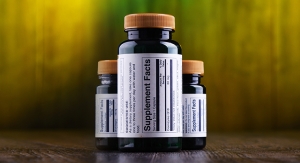By Greg Doherty, Bolton & Company05.01.17
In the old days, getting product liability insurance for your health and wellness company was pretty simple. Three broad categories existed: food, dietary supplements, and pharmaceuticals.
If you were a food company, it was easy and inexpensive to get product liability insurance. What can go wrong with a pretzel or hot sauce for your favorite Mexican dish? If you were a dietary supplement company, you were somewhere in the middle of the two categories, but the insurance was much more expensive than regular food insurance (although it has declined dramatically in the past 10 years). If you were a pharmaceutical company, you also paid the big bucks, but a lot of “Big Pharma” companies have deductibles in the millions of dollars and buy true, risk-transfer insurance only for the most catastrophic and unforeseen events (which unfortunately still occur in that arena).
Much has been written about the convergence of these three sectors, in particular the emergence of new categories of health and wellness products. A consumer-driven movement fueled by technology has given rise to new product categories such as:
Understand that insurance underwriters normally focus on a particular industry, which makes sense. If you do nothing but analyze the insurable risks of restaurants every day, you will probably get pretty good at telling the good ones from the not-so-good ones. You will know what questions to ask, and which are irrelevant. You will know about restaurant industry trade associations, and you will be aware of whatever regulatory climate your prospective policyholders must be subject to. And you will look for compliance with those regulations as part of your risk analysis.
This is where it gets tricky. In the broad category of health and wellness, Underwriter A may have a specialty in dietary supplements and clinical trials. Underwriter B may be an expert in food products only (and in the trillion-dollar worldwide food market, there are a lot of those). Underwriter C may be a pharmaceutical drug underwriter and will also underwrite dietary supplements only because they are the less-regulated “first cousin” of pharmaceuticals.
Let’s say your company is in the business of selling products in one of these emerging categories and you need product liability insurance. This is where the square peg may meet the round hole.
Remember that insurance underwriting, by its very nature, is a process of discrimination. If the underwriter does not feel comfortable with your products simply because he/she does not understand what they are, he/she will very likely decline to offer you insurance at any price. Saying “no” and moving on to the next account that he/she does understand is a very easy decision. It’s human nature.
Let’s consider two of the several emerging categories: nutricosmetics and medical foods. How might these underwriters react to a solicitation to insure them?
Underwriter A (dietary supplements, clinical trials): “I might consider the nutricosmetics because they are a little bit like dietary supplements, but I’m not comfortable with medical foods because they make disease-management claims like pharmaceuticals.” This would be a poor decision because the regulations regarding medical foods allow for disease-management claims, and medical foods can only be used under the supervision of a qualified health professional, which would imply another level of safety and control of medical food products, (i.e., reduced product liability risk). But the answer comes back as “no.”
Underwriter B (food product only): “I don’t know what nutricosmetics are but they sure don’t look like food, so no. As for medical foods, I did a little research on those and while the term ‘food’ is used, it looks much more like a pharmaceutical product to me, and I won’t do that either.”
Underwriter C (pharmaceuticals, dietary supplements): “Sure I’ll take a crack at these two categories, they look easier and less risky to me than supplements or drugs, but I am going to charge my sky-high supplement and drug rates if you want a quote from me.”
Do you see what’s happening here? It’s another kind of convergence: misinformation, lack of information, and slotting products into categories where they do not belong. The response from Underwriter C is the worst, and you do not want to find yourself in that dilemma.
How to Avoid the Pitfall of Misclassification
First of all, product liability insurance for all of these categories will invariably involve engaging a commercial insurance broker to get the job done. The likelihood of State Farm, Allstate, Hartford or Farmers offering this insurance to you is zero.
Is your current broker up to the challenge of differentiating you to these underwriters? Your instincts will probably answer that question. If not, then high premiums offered to you just might.
Just as the underwriters have specialties, so do many (but not all) brokers. You need to find one of these specialists with the technical skills and abilities to walk you through the minefield that is insurance underwriting. He or she needs to have a deep knowledge of what you do, who you do it with, how you are regulated, and numerous, similar issues so he/she can properly “sell” your product liability exposure to the right underwriters. This will ensure that you get a fair and reasonable premium offered to you, which originates from an insurance underwriter who truly understands your business.
Greg Doherty
Bolton & Company
Greg Doherty is a commercial insurance broker with Bolton & Company Insurance Brokers and Employee Benefits Consultants, Pasadena, CA. He is the executive vice president and managing director of the Dietary Supplement Practice Group for the firm, which specializes in the nutritional product and dietary supplement industries, including but not limited to contract manufacturers, raw materials suppliers, distributors/retailers. Mr. Doherty has four decades of experience as a broker, focusing solely on the dietary supplement industry for the last 14 years. He can be reached at gdoherty@boltonco.com; Phone: 626-535-1409; Website: www.gregdoherty.net.
If you were a food company, it was easy and inexpensive to get product liability insurance. What can go wrong with a pretzel or hot sauce for your favorite Mexican dish? If you were a dietary supplement company, you were somewhere in the middle of the two categories, but the insurance was much more expensive than regular food insurance (although it has declined dramatically in the past 10 years). If you were a pharmaceutical company, you also paid the big bucks, but a lot of “Big Pharma” companies have deductibles in the millions of dollars and buy true, risk-transfer insurance only for the most catastrophic and unforeseen events (which unfortunately still occur in that arena).
Much has been written about the convergence of these three sectors, in particular the emergence of new categories of health and wellness products. A consumer-driven movement fueled by technology has given rise to new product categories such as:
- Functional foods and beverages
- Pre- and probiotics and herbals
- Nutricosmetics both ingested and topical
- Medical foods
- Green superfoods
- Fortified foods and meal replacement products
Understand that insurance underwriters normally focus on a particular industry, which makes sense. If you do nothing but analyze the insurable risks of restaurants every day, you will probably get pretty good at telling the good ones from the not-so-good ones. You will know what questions to ask, and which are irrelevant. You will know about restaurant industry trade associations, and you will be aware of whatever regulatory climate your prospective policyholders must be subject to. And you will look for compliance with those regulations as part of your risk analysis.
This is where it gets tricky. In the broad category of health and wellness, Underwriter A may have a specialty in dietary supplements and clinical trials. Underwriter B may be an expert in food products only (and in the trillion-dollar worldwide food market, there are a lot of those). Underwriter C may be a pharmaceutical drug underwriter and will also underwrite dietary supplements only because they are the less-regulated “first cousin” of pharmaceuticals.
Let’s say your company is in the business of selling products in one of these emerging categories and you need product liability insurance. This is where the square peg may meet the round hole.
Remember that insurance underwriting, by its very nature, is a process of discrimination. If the underwriter does not feel comfortable with your products simply because he/she does not understand what they are, he/she will very likely decline to offer you insurance at any price. Saying “no” and moving on to the next account that he/she does understand is a very easy decision. It’s human nature.
Let’s consider two of the several emerging categories: nutricosmetics and medical foods. How might these underwriters react to a solicitation to insure them?
Underwriter A (dietary supplements, clinical trials): “I might consider the nutricosmetics because they are a little bit like dietary supplements, but I’m not comfortable with medical foods because they make disease-management claims like pharmaceuticals.” This would be a poor decision because the regulations regarding medical foods allow for disease-management claims, and medical foods can only be used under the supervision of a qualified health professional, which would imply another level of safety and control of medical food products, (i.e., reduced product liability risk). But the answer comes back as “no.”
Underwriter B (food product only): “I don’t know what nutricosmetics are but they sure don’t look like food, so no. As for medical foods, I did a little research on those and while the term ‘food’ is used, it looks much more like a pharmaceutical product to me, and I won’t do that either.”
Underwriter C (pharmaceuticals, dietary supplements): “Sure I’ll take a crack at these two categories, they look easier and less risky to me than supplements or drugs, but I am going to charge my sky-high supplement and drug rates if you want a quote from me.”
Do you see what’s happening here? It’s another kind of convergence: misinformation, lack of information, and slotting products into categories where they do not belong. The response from Underwriter C is the worst, and you do not want to find yourself in that dilemma.
How to Avoid the Pitfall of Misclassification
First of all, product liability insurance for all of these categories will invariably involve engaging a commercial insurance broker to get the job done. The likelihood of State Farm, Allstate, Hartford or Farmers offering this insurance to you is zero.
Is your current broker up to the challenge of differentiating you to these underwriters? Your instincts will probably answer that question. If not, then high premiums offered to you just might.
Just as the underwriters have specialties, so do many (but not all) brokers. You need to find one of these specialists with the technical skills and abilities to walk you through the minefield that is insurance underwriting. He or she needs to have a deep knowledge of what you do, who you do it with, how you are regulated, and numerous, similar issues so he/she can properly “sell” your product liability exposure to the right underwriters. This will ensure that you get a fair and reasonable premium offered to you, which originates from an insurance underwriter who truly understands your business.
Greg Doherty
Bolton & Company
Greg Doherty is a commercial insurance broker with Bolton & Company Insurance Brokers and Employee Benefits Consultants, Pasadena, CA. He is the executive vice president and managing director of the Dietary Supplement Practice Group for the firm, which specializes in the nutritional product and dietary supplement industries, including but not limited to contract manufacturers, raw materials suppliers, distributors/retailers. Mr. Doherty has four decades of experience as a broker, focusing solely on the dietary supplement industry for the last 14 years. He can be reached at gdoherty@boltonco.com; Phone: 626-535-1409; Website: www.gregdoherty.net.






















